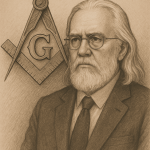Operation Paperclip, a clandestine operation conducted by the United States government after World War II, remains a highly controversial and often overlooked chapter in history. In this video review, we delve into the intriguing details of this operation, shedding light on the recruitment of around 1,600 Nazi scientists, including renowned aerospace engineer Werner Von Braun. Join us as we uncover the ethical implications and long-lasting impact of Operation Paperclip.
The Discovery: Ossenberg List and its Significance
In 1945, a Polish lab technician stumbled upon fragments of the Ossenberg list floating in a Bond University toilet. Little did he know that this chance discovery would trigger one of the most contentious intelligence initiatives in the history of the United States. The Ossenberg list was a roll call of Nazi Germany’s top scientists, rocketeers, and engineers, intended for reassignment from the battlefield to laboratories. This set the stage for the subsequent recruitment of these scientists by the US government.
The Birth of Operation Paperclip: A Secretive Undertaking
With the approval of President Harry S Truman, Operation Paperclip commenced in 1945. So secretive was this operation that even the Justice Department’s Nazi Hunters, responsible for tracking down war criminals, were unaware of its existence. Between 1945 and 1959, approximately 1,600 Nazi scientists, many of whom had held high-ranking positions in the Third Reich, were recruited under the operation’s umbrella.
Werner Von Braun: From Rockets to Space Exploration
Among the notable figures involved in Operation Paperclip was Werner Von Braun, the infamous aerospace engineer responsible for creating the Third Reich’s deadly V2 Rockets. Due to Operation Paperclip, Von Braun became the director of NASA’s Marshall Space Flight Center and the Chief Architect of the Apollo moon landing launch vehicle. We delve into the consequences of granting influential positions to former Nazis and explore the impact of space exploration.
Intellectual Reparations and Germany’s War Reparations
Apart from the scientists themselves, Operation Paperclip also sought to acquire their technical and intellectual secrets, amounting to an estimated $10 billion in value. These secrets, which included patents and industrial processes, were considered intellectual reparations and formed part of Germany’s war reparations. We examine the controversial nature of these acquisitions and their long-term consequences.
The Public Revelation: Limited Accountability
The covert nature of Operation Paperclip ensured that the public remained unaware of its existence until 1958 when Time Magazine ran a story on Werner Von Braun. Despite the subsequent publicity, none of the Paperclip recruits were ever charged or held accountable for their war crimes. Many of these scientists went on to lead prosperous lives as US citizens. We reflect on the moral dilemma this lack of accountability presents and its implications for justice and historical memory.
Ethical Implications of Operation Paperclip: Challenging Government Boundaries
Operation Paperclip raises profound questions about the ethical boundaries crossed by governments in pursuit of scientific and technological advancement. We explore the implications of prioritizing expertise over moral culpability and the potential long-term consequences of such decisions.
The recruitment of Nazi scientists under Operation Paperclip
This recruitment showcases a prime example of the tension between scientific progress and ethical responsibility. By overlooking the war crimes committed by these individuals, the US government prioritized their expertise and knowledge, hoping to gain an edge in the escalating Cold War. However, this decision came at a significant moral cost.
One of the main ethical concerns of Operation Paperclip is the lack of accountability for the scientists’ actions during World War II. Despite their involvement in heinous crimes and atrocities, they were given a fresh start and the opportunity to contribute to the scientific advancements of the United States. This lack of accountability not only undermines justice but also sends a troubling message about the value placed on human rights and the consequences of war crimes.
The integrity and credibility of the scientific community
Operation Paperclip raises questions about the integrity and credibility of the scientific community. By integrating former Nazi scientists into prominent positions within American institutions, the US government implicitly endorsed their past actions. This endorsement casts a shadow of doubt on the scientific community’s commitment to ethical conduct and human rights. It challenges the perception of scientists as impartial seekers of truth and raises concerns about the potential compromise of scientific integrity in the pursuit of geopolitical advantage.
The long-term consequences
The long-term consequences of Operation Paperclip are not limited to ethical implications alone. By providing sanctuary and support to former Nazi scientists, the US inadvertently contributed to the whitewashing of their pasts. Many of these scientists went on to receive accolades and honors for their contributions to American science and technology, effectively erasing their involvement in Nazi war crimes from public consciousness. This erasure perpetuates a dangerous narrative that downplays the gravity of their actions and diminishes the collective responsibility to remember and learn from history.
Furthermore, the impact of Operation Paperclip extends beyond the moral sphere. The knowledge and technological advancements brought by these scientists undoubtedly played a significant role in shaping the trajectory of scientific progress and innovation in the United States. However, it is crucial to critically examine whether this progress justifies how it was achieved. By embracing former Nazi scientists, the US government indirectly condoned their methods and ideologies, raising concerns about the potential ideological contamination of scientific pursuits.
The Lessons Learned
In light of Operation Paperclip, it is essential to reflect on the lessons learned and the need for ethical frameworks and oversight in scientific endeavors. Governments and institutions must prioritize both scientific advancement and moral responsibility, ensuring that the pursuit of knowledge does not come at the expense of human rights and justice. The case of Operation Paperclip serves as a reminder of the complex choices faced by societies in times of conflict and the imperative to maintain ethical boundaries, even in the pursuit of progress.
Final Thoughts
Operation Paperclip remains a thought-provoking and controversial chapter in history. The recruitment of Nazi scientists by the US government raises profound ethical implications and challenges the boundaries of scientific pursuit. By prioritizing expertise over moral accountability, Operation Paperclip has left a lasting impact on the scientific community, historical memory, and perceptions of justice. It serves as a cautionary tale, reminding us of the delicate balance between scientific progress and ethical responsibility, and the importance of upholding principles even in the face of geopolitical challenges.




















